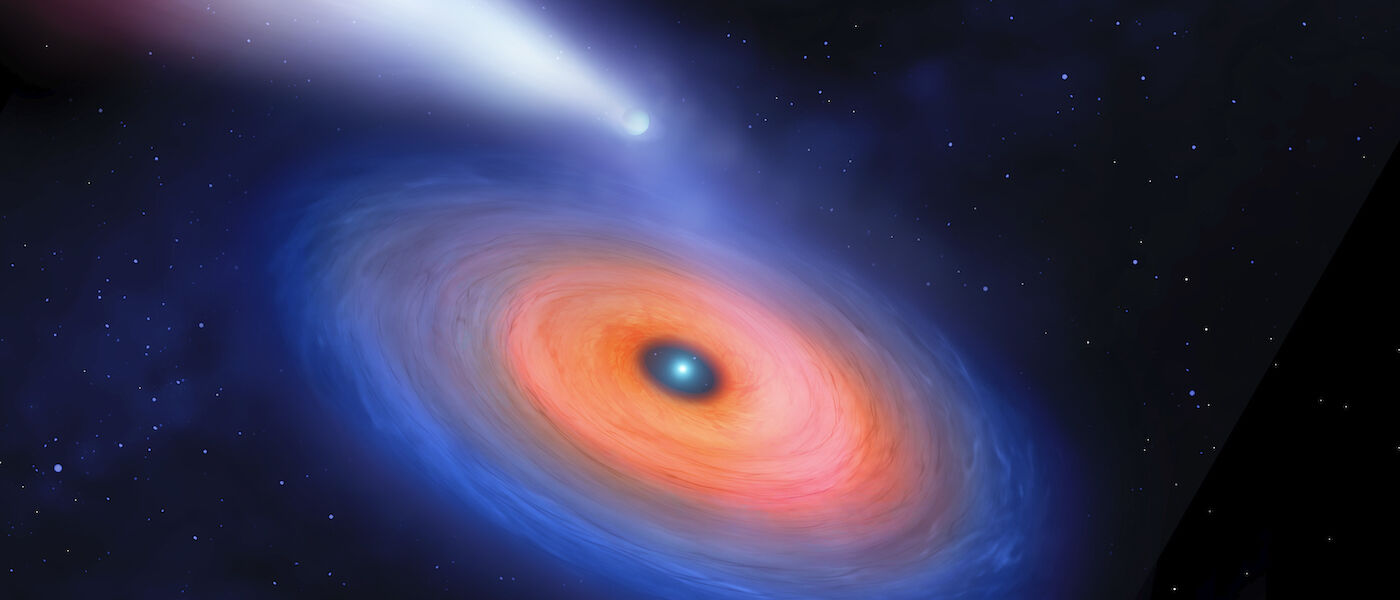Scientists have found evidence of a planet orbiting a white dwarf star

I’m dreaming of a white...dwarf star! For the first time, scientists have found evidence of a planet orbiting a white dwarf star. Lead author Boris Gaensicke notes that there has been “growing evidence that planetary systems survive into the white dwarf stage,” but this is the first evidence detected that one exists!
What’s a white dwarf star?
White dwarves are what happen to average-sized stars when they reach the end of their nuclear fusion stage. When a star like our sun runs out of fuel, it will puff up into a red giant and then shrink back down to a white dwarf. A white dwarf star is basically the mass of a star packed into a much smaller area around the size of Earth.
Tell me about this new planet!
In a study published Dec. 4, a group of scientists shared their findings about a planet that seems to be orbiting a white dwarf star. The star, called WDJ0914+1914, is about 2,040 light years away from us and has a temperature of around 50,400 degrees Fahrenheit. That’s so hot, that it appears to be evaporating the planet orbiting it! The gases that are being released are what scientists believe is the evidence for this planet’s existence.
So the scientists haven’t seen the planet directly?
Nope, rather they have used two telescopes to study the star and the gases surrounding it. The gases detected were hydrogen, sulfur, and oxygen. That’s very strange for a white dwarf star to emit those gases, leading scientists to conclude there must be a planet orbiting the star that is being stripped of its gases. The very same thing is predicted by the paper’s authors to happen to our ice giants, Neptune and Uranus, when our star reaches its white dwarf stage.
Interested in more space stories like this one? Check out our all-live show, “Wonders of the Night Sky,” playing in LSC’s Jennifer Chalsty Planetarium. A portion is always set aside for LSC Space News Now stories.
